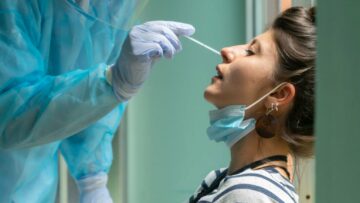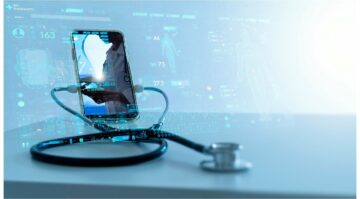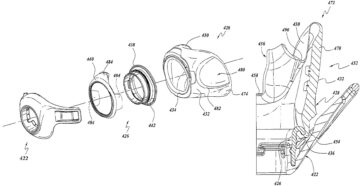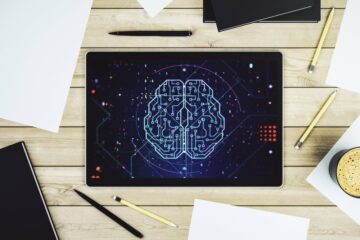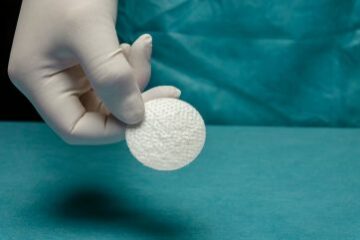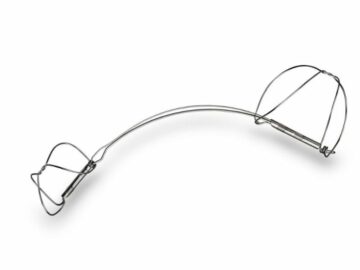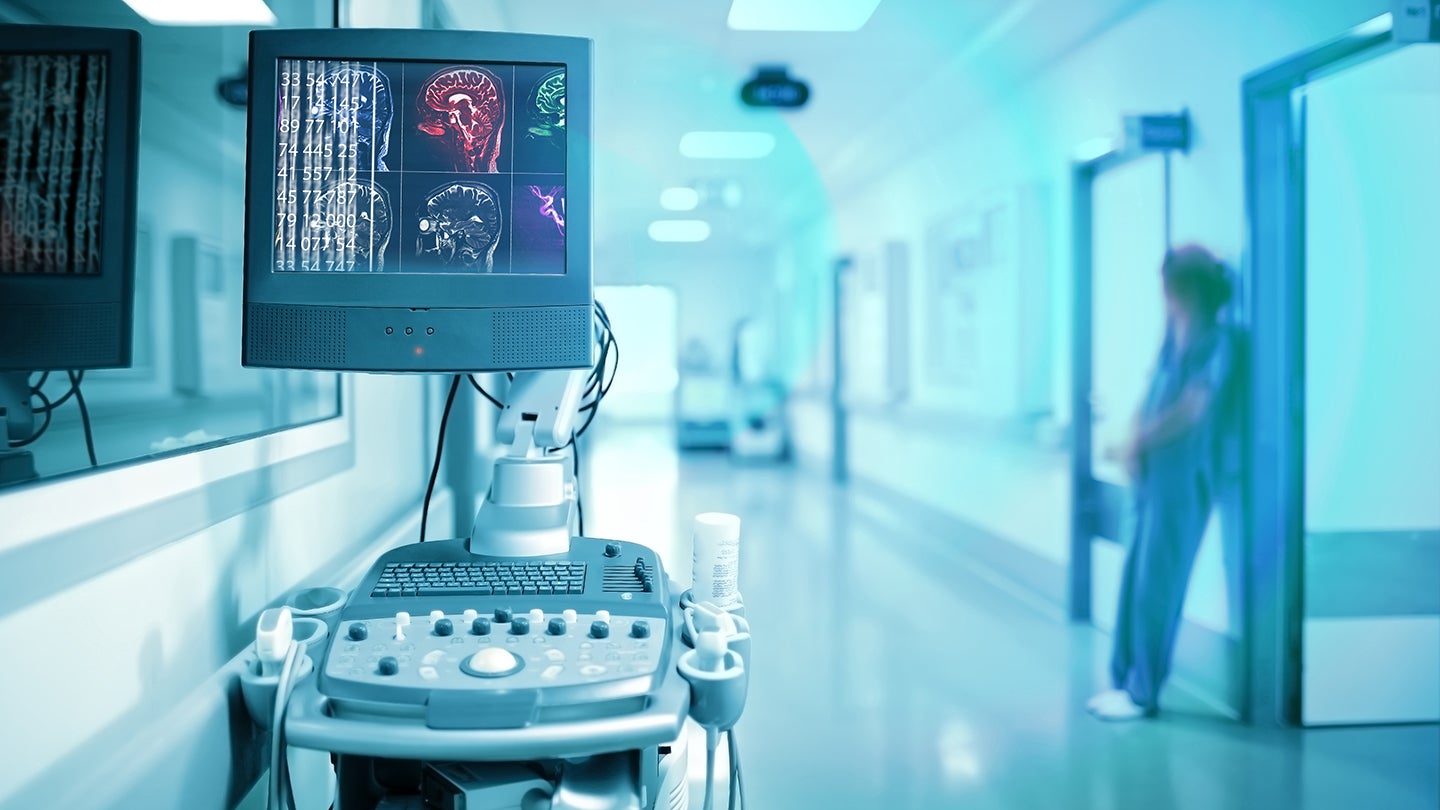
Maddy Irwin joined GlobalData’s Thematic Intelligence team in September 2022. She is particularly interested in analysing how tech themes affect the healthcare industry.
Lara Virrey: What are the most exciting developments in AI for the medical device industry today?
Maddy Irwin: AI can transform the speed and accuracy of medical imaging and diagnosis. Radiologists and pathologists routinely evaluate thousands of medical images to identify and diagnose diseases. However, inaccuracy and misdiagnoses due to human error or subjective interpretation may impact patient outcomes, especially if the radiologist is overburdened with work. AI can assist in medical imaging analysis by viewing these medical images, saving radiologists valuable time.
AI can also increase the efficiency of supply chains, ensuring medical supplies and services are delivered to patients. Automation with AI can be used across various parts of the supply chain to reduce costs, improve efficiency, and alleviate staff pressures, especially where there are staff shortages.
AI can automate the process of tracking, forecasting, and managing inventory. For purchasing medical supplies and products, automated purchasing systems can use AI to analyse previous trends in purchasing data to identify opportunities for reducing costs and negotiating better deals. AI-powered systems can increase accuracy by identifying order errors and detecting fraudulent activity.
Manufacturing robots with AI capabilities can help companies establish agile, cost-effective, and robust processes that are coordinated across the supply chain. AI-powered warehouse tools speed up communication and reduce errors by predicting which items need downtime or repairs. In addition, AI-powered digital twins can monitor and identify optimal production processes or create virtual training platforms for employees.
AI can also improve medical device manufacturing efficiency and reduce risk. Through machine learning, computers are taking in troves of data and learning errors while enhancing engineers’ jobs in the manufacturing process.
Access the most comprehensive Company Profiles on the market, powered by GlobalData. Save hours of research. Gain competitive edge.

Thank you!
Your download email will arrive shortly
We are confident about the unique quality of our Company Profiles. However, we want you to make the most beneficial decision for your business, so we offer a free sample that you can download by submitting the below form
By GlobalData
[embedded content]
Lara Virrey: How can companies in the medical device sector benefit from advances in generative AI in particular?
Maddy Irwin: Generative AI can train on existing images of healthy humans, as well as tumour formations, helping doctors distinguish abnormalities from normal findings by detecting minor image alterations, even spotting unseen abnormalities which the human eye cannot identify.
Generative AI tools can also be used to enhance low-quality scans such as ultrasounds and x-rays into high-quality images. This gives healthcare professionals a clearer view of the patient’s pathology and reducing inequalities caused by the disparity of imaging equipment between hospitals and locations.
Lara Virrey: What are the barriers to implementation of AI in the medical device industry?
Maddy Irwin: The use of generative AI in healthcare also raises concerns about protecting patient privacy and sensitive medical data, including using patient data to train generative AI algorithms. Further, generative AI increases cybersecurity risks and the potential for misuse or unauthorised access to healthcare data. Existing strict regulatory regimes around data privacy in general and healthcare specifically will need to be updated to reflect advancements in AI before generative AI can be trusted in healthcare.
Lara Virrey: Which companies are the leading adopters of AI technologies in the medical device sector?
Maddy Irwin: Leading adopters of AI technologies in the medical devices sector include Johnson & Johnson, Medtronic, GE Healthcare, Nihon Kohden, Zimmer Biomet, and 3M.
For example, GD healthcare is accelerating in the use of AI-enabled medical devices. On an October 2022 FDA list of AI-enabled medical devices in the US, GE Healthcare had 42 authorisations, the highest number from any company. Among this is Voluson 22, an AI-powered women’s health ultrasound system that provides enhanced image quality and specialised clinical tools to help see anatomical detail with higher accuracy and precision.
GE’s AI strategy also includes Edison Health Services, its software technology that collates patient data for streamlined care and operations. In February 2023, GE acquired Caption Health, which uses AI in ultrasound exams to aid in early disease detection. GE Healthcare will combine Caption Health’s AI applications with GE Healthcare’s ultrasound device to help detect disease earlier and deliver more precise diagnostics.
- SEO Powered Content & PR Distribution. Get Amplified Today.
- PlatoData.Network Vertical Generative Ai. Empower Yourself. Access Here.
- PlatoAiStream. Web3 Intelligence. Knowledge Amplified. Access Here.
- PlatoESG. Carbon, CleanTech, Energy, Environment, Solar, Waste Management. Access Here.
- PlatoHealth. Biotech and Clinical Trials Intelligence. Access Here.
- Source: https://www.medicaldevice-network.com/comment/ai-in-medical-devices-qa-with-globaldata-thematic-analyst/
- :is
- :where
- $UP
- 11
- 2022
- 2023
- 22
- 7
- 8
- 9
- a
- abnormalities
- About
- accelerating
- access
- accuracy
- acquired
- across
- activity
- addition
- administrative
- adopters
- advancements
- advances
- affect
- agile
- AI
- AI in Healthcare
- AI strategy
- AI-powered
- Aid
- algorithms
- alleviate
- Allowing
- also
- alterations
- among
- an
- analyse
- analysis
- analyst
- and
- any
- applications
- appointments
- ARE
- around
- AS
- assist
- authorisations
- automate
- Automated
- Automation
- barriers
- BE
- before
- below
- beneficial
- benefit
- Better
- between
- business
- by
- CAN
- cannot
- capabilities
- care
- caused
- chain
- chains
- clearer
- Clinical
- combine
- Communication
- Companies
- company
- competitive
- comprehensive
- computers
- Concerns
- confident
- content
- coordinated
- cost-effective
- Costs
- create
- credit
- Cybersecurity
- data
- data privacy
- Deals
- decision
- deliver
- delivered
- detail
- detect
- Detection
- developments
- device
- Devices
- diagnose
- diagnosis
- Diagnostics
- digital
- Digital twins
- Disease
- diseases
- distinguish
- Doctors
- download
- downtime
- due
- Earlier
- Early
- easing
- Edge
- Edison
- efficiency
- embedded
- employees
- end
- enhance
- enhanced
- enhancing
- ensuring
- equipment
- error
- Errors
- especially
- establish
- Ether (ETH)
- evaluate
- Even
- example
- exciting
- existing
- eye
- fda
- February
- findings
- Focus
- For
- form
- fraudulent
- fraudulent activity
- Free
- from
- further
- Gain
- ge
- GE Healthcare
- General
- generative
- Generative AI
- gives
- GlobalData
- had
- Health
- health services
- healthcare
- healthcare industry
- healthy
- help
- helping
- high-quality
- higher
- highest
- hospitals
- HOURS
- How
- However
- HTTPS
- human
- Humans
- identify
- identifying
- if
- image
- images
- Imaging
- Impact
- implementation
- improve
- in
- include
- includes
- Including
- Increase
- increased
- Increases
- industry
- inequalities
- Intelligence
- interested
- interpretation
- into
- inventory
- items
- ITS
- Jobs
- Johnson
- joined
- jpg
- leading
- learning
- List
- locations
- machine
- machine learning
- make
- managing
- manufacturing
- many
- Market
- May..
- medical
- medical data
- medical device
- medical devices
- medical imaging
- minor
- misuse
- Monitor
- more
- most
- Need
- normal
- number
- october
- of
- offer
- on
- Operations
- opportunities
- optimal
- or
- order
- our
- Our Company
- outcomes
- particular
- particularly
- parts
- pathology
- patient
- patient data
- patients
- Platforms
- plato
- Plato Data Intelligence
- PlatoData
- player
- potential
- powered
- precise
- Precision
- predicting
- pressures
- previous
- privacy
- process
- processes
- Production
- Products
- professionals
- Profile
- Profiles
- protecting
- providers
- provides
- purchasing
- Q&A
- quality
- raises
- records
- reduce
- reducing
- reflect
- regimes
- regulatory
- repairs
- research
- Risk
- risks
- robots
- robust
- routine
- routinely
- Save
- saving
- scans
- sector
- see
- sensitive
- September
- service
- service providers
- Services
- she
- shortages
- shutterstock
- So
- Software
- specialised
- specifically
- speed
- spotting
- Staff
- start
- Strategy
- streamlined
- streamlining
- strict
- such
- suppliers
- supplies
- supply
- supply chain
- Supply chains
- system
- Systems
- taking
- tasks
- team
- tech
- Technologies
- Technology
- that
- The
- thematic
- themes
- There.
- These
- this
- thousands
- Through
- time
- to
- today
- tools
- Tracking
- Train
- Training
- Transform
- Trends
- trusted
- Twins
- ultrasound
- unique
- updated
- updating
- us
- use
- used
- uses
- using
- Valuable
- various
- Video
- View
- viewing
- Virtual
- want
- Warehouse
- we
- WELL
- What
- which
- while
- will
- with
- Work
- you
- Your
- youtube
- zephyrnet


